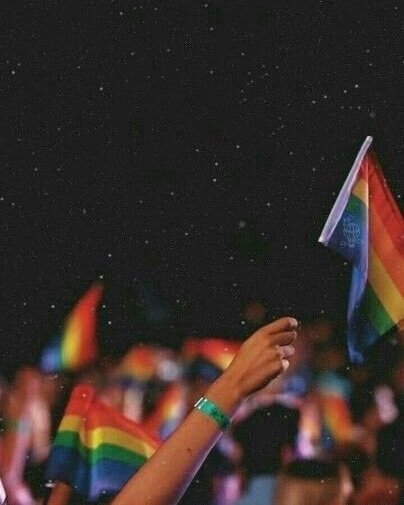Safe Space, Not Segregation
Safe spaces were created so that minority groups have somewhere to, as the name suggests, feel safe. However recently a discourse online has broken out, with some people saying that safe spaces are “basically segregation”.
This came after certain queer TikToks said that they feel like queer safe spaces, like gay clubs, have been taken over by cishet people. A lot has been in the headlines about this recently, predominantly due to the recent interview where Daniel Craig says he prefers to go to gay bars than "straight venues."
"James Bond walks into a gay bar. But should he?" - NBC News
"Queer women are calling out straight people who frequent gay bars on TikTok" - Pink News
"Bond star says he dislikes the aggression of hetero spaces, and gay bars were a good place to meet women" - The Guardian
All of this has caused many people to get angry and say that all spaces should be available to everyone, otherwise we are moving away from equality.
But first, let's understand why safe spaces were created. Studies suggest that around half of transgender people and bisexual women will experience sexual violence at some point in their lifetimes. Almost 1 in 4 LGBT people have experienced some sort of harassment due to how they identify, whether it's on the streets or in nightclubs. Creating gay clubs mean that these people are safer around their own community and can experience nightlife without the fear of assault and harassment.
Introducing cishet people into these spaces removes safety. It suddenly adds fear that someone is stepping into your personal space. The same applies to places for BIPOC. Many universities have introduced study safe spaces for people of minority groups, which has seemed to have angered many of the other students. But haven't we've all heard racist university/college horror stories. For instance, stories like Brianna Brochu, a white student who took to social media bragging about getting her black roommate extremely ill by rubbing faeces on her toothbrushes.
It's cases like these why safe spaces for these people are needed. Places like universities or clubs can be extremely dangerous for them at times. Clubs are always a risk, but being queer and/or BIPOC creates a higher chance of harassment and even possibly spiking. This has become especially scary with the rise of needle injections, and recent statistics, such as those announced by The Tab UK make these clubs seem even more dangerous.
"At least 2,600 students and young people believe they have been spiked since the start of this university year, The Tab can reveal. The Tab also asked respondents if they believe a friend or someone they know has been spiked, since the start of this uni year. 50 per cent of students and young people surveyed said yes – almost 12,000 people."
Therefore this is not about creating segregation, it's about making sure that everyone is safe and has equal opportunities.
Our aim for equality should mean everyone can feel safe. These spaces do not split us apart but bring us closer together as it allows people to connect with those with similar experiences. People have always needed a sense of belonging, and race and sexuality are often how we find our people.
A queer person should never walk into a gay bar and fear being insulted or even harassed due to their sexuality, gender or expression. But that is something that is getting harder and harder to avoid, as we push towards ‘equality.
We need to unite, but also realise that we are all different, and we all require different things to have the same opportunities as others. Segregation has always negatively impacted a minority group, historically these groups had less access to necessities and were treated poorly by the other side, who saw themselves as superior.
Queer people being allowed a space where they can interact with each other does not stop cishet people from doing the same. An area for BIPOC does not take away spaces where white people can interact without fear of being discriminated against.
These spaces do not take away privileges from the other side, they do not take away benefits from the other side, it allows for everyone in a community to be safe.
